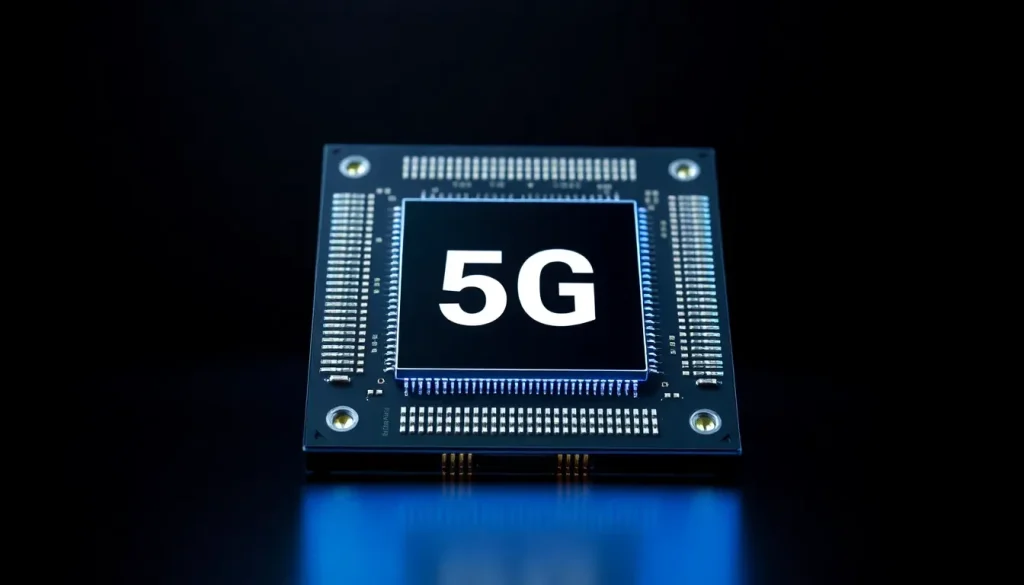Samsung Developing New Exynos SoC with NPU for 5G Modem

In an era where technology is rapidly evolving, the need for enhanced connectivity is more crucial than ever. Samsung is making strides in this direction with its new Exynos chipset, which is set to revolutionize satellite communication. This development not only promises to improve connectivity but also aims to integrate advanced artificial intelligence capabilities into mobile devices.
As we delve deeper into Samsung's innovative approach, we discover the intricacies of how these advancements could reshape the landscape of communication technology. The challenges and opportunities presented by this new chipset will have significant implications for consumers and industries alike.
- Samsung's Exynos chipset: A leap into AI-driven connectivity
- The significance of low-orbit satellite communication
- Potential impact on the telecommunications industry
- Exploring the features of the Exynos 2600 chipset
- AI's role in improving satellite communication
- Future prospects for satellite connectivity
Samsung's Exynos chipset: A leap into AI-driven connectivity
Samsung is reportedly integrating a Neural Processing Unit (NPU) into its upcoming Exynos chipsets, specifically designed for 5G modems. This integration is set to enhance the chipset's capabilities, enabling real-time satellite communications and bringing AI-driven functionalities to mobile devices.
With this advancement, smartphones powered by the new Exynos chip could gain the ability to:
- Predict satellite movements with high accuracy
- Communicate beam status in real-time
- Maximize signal strength for improved connectivity
This shift towards AI-enhanced capabilities signifies a critical evolution in the way mobile devices interact with satellite networks, setting the stage for future innovations.
The significance of low-orbit satellite communication
The integration of AI into satellite communication is particularly timely, as more companies are launching low-orbit satellites. These satellites are designed to provide global internet coverage and facilitate various communication services. However, existing communication systems face limitations when attempting to interface directly with these vast networks of satellites.
Key challenges include:
- Limited real-time data processing capabilities
- Difficulty in maintaining consistent signal strength
- Complexity in managing communication with multiple satellites simultaneously
Samsung's new Exynos chipset aims to address these challenges by incorporating advanced AI functionalities directly into the 5G modem, facilitating more efficient communication with up to 10,000 low-orbit satellites.
Potential impact on the telecommunications industry
Samsung's discussions with SpaceX signal a potential disruption in the telecommunications sector. The integration of the Exynos chipset into systems that communicate with low-orbit satellites could result in:
- Reduced latency in satellite communications
- Increased accessibility to remote areas
- Enhanced capabilities for emergency services and critical communications
The implications of this technology extend beyond consumer devices, potentially transforming industries such as agriculture, transportation, and disaster response, where reliable communication is essential.
Exploring the features of the Exynos 2600 chipset
The Exynos 2600, rumored to be Samsung's upcoming chipset, is generating significant interest. Although details about its specifications are still emerging, there are expectations surrounding:
- A dedicated 5G modem that operates independently from the main chipset
- Enhanced energy efficiency and processing power
- The potential inclusion of an NPU, which could significantly boost performance
While the current reports do not confirm the inclusion of the NPU in the Exynos 2600, the technology may appear in future iterations, paving the way for even more advanced mobile communications.
AI's role in improving satellite communication
The integration of AI technologies within the Exynos chipset could lead to significant advancements in satellite communication. By employing machine learning algorithms, the chipset can learn from data patterns, enabling it to:
- Optimize routing for signal transmission
- Improve data reliability and reduce transmission errors
- Adapt communication strategies based on environmental conditions
This transformative approach could redefine user experiences, particularly in areas where traditional communication methods fall short.
Future prospects for satellite connectivity
As the demand for reliable global communication continues to rise, Samsung's innovations in satellite connectivity will be critical. With the potential for real-time communication and enhanced signal strength, the new Exynos chipset is set to play a pivotal role in expanding connectivity options for consumers worldwide.
To explore further, check out this video that discusses Samsung's developments in satellite communications:
As Samsung continues to innovate, the implications of integrating AI and advanced satellite communication capabilities into consumer devices will likely shape the future of telecommunications.
News Source: Hankyung
Stay updated with the latest developments by following Wccftech on Google or add us as a preferred source for news coverage and reviews in your feeds.




Leave a Reply